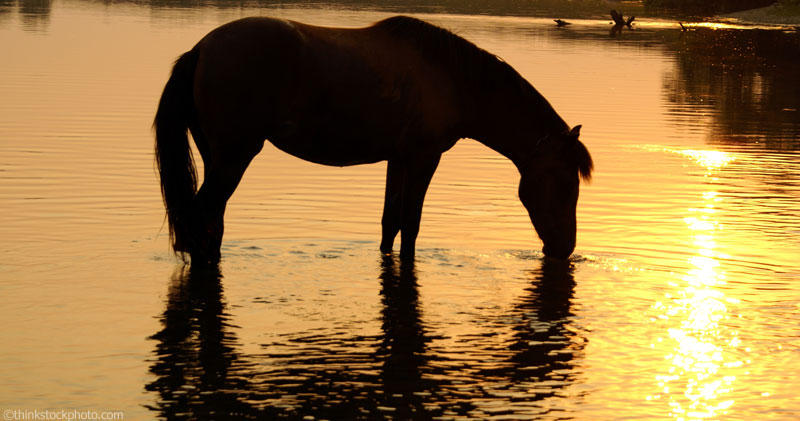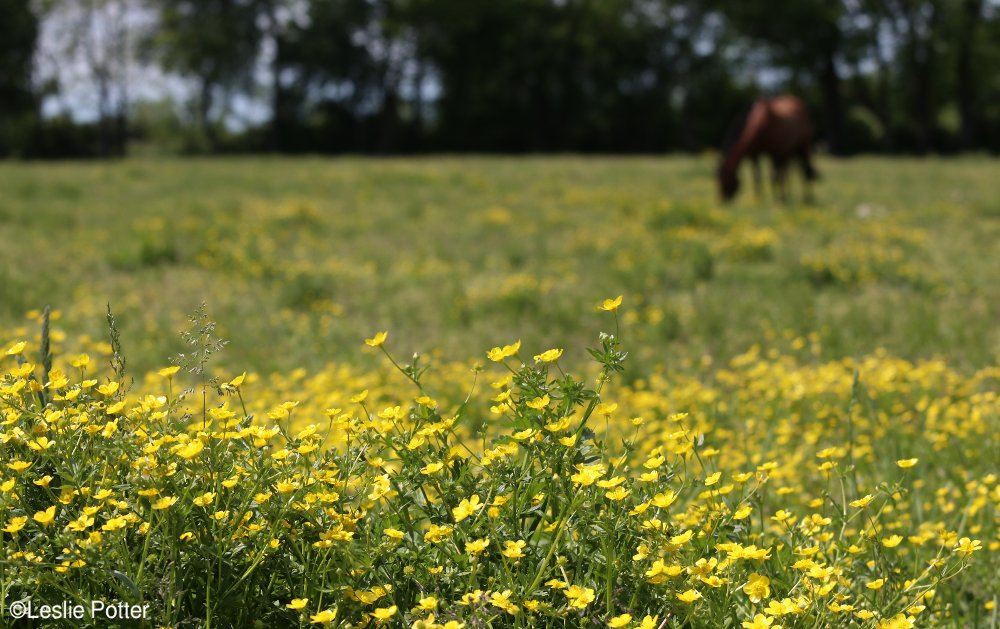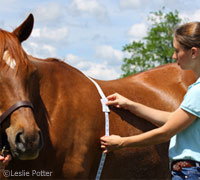From Boehringer Ingelheim Vetmedica, Inc.
Summertime is fun time, whether you’re headed to the nearest trailhead or across the country to a major show venue. But just as your equine activities go into high gear, so do the challenges that come with the season. As the weather turns from warm to hot, keep in mind that stress from exercise, exposure to other horses, insect activity and parasites all reach their peak during this season. To keep your horse healthy and comfortable, Dr. Robert Stenbom, DVM, Senior Equine Professional Services Veterinarian at Boehringer Ingelheim, offers these tips as temperatures rise.

1. Keep Your Horse Hydrated and Cool
“Most horses drink between 5 and 15 gallons of water a day,” says Dr. Stenbom, depending on multiple factors. Horses with underlying diseases, such as renal disease, will increase their water consumption, and horses fed a diet of dry feedstuffs will consume more water than horses on pasture in the summertime. Have a cool, clean water source available for drinking.
It’s important in the heat of the summer to have a cool water source available to bathe horses post-exercise and use fans to keep air moving over them to help lose body heat. This is particularly important for horses who are non-sweaters.
“Excessive work in extreme conditions, especially with horses that haven’t been worked into it gradually, may lead to problems or exacerbate conditions that are not usually a problem,” Dr. Stenbom notes. “Even a well-conditioned horse could get into trouble on a really hot day.”
2. Provide Shade and Ventilation
Whether they are at home in a barn, traveling, at a show or lounging in a pasture, horses should have access to shade. Good ventilation in trailers will help keep horses comfortable in the event you are held up in traffic on a hot day. At the show grounds, check for good ventilation in stalls. Fans can be helpful where ventilation is lacking. Consider an awning to shade horses tied to trailers at one-day shows.
3. Protect Your Horse from Infectious Diseases
“When horses are traveling to shows or other events, they are interacting with other horses, and that’s when disease transmission from horse to horse, such as influenza and rhinopneumonitis, become important,” Dr. Stenbom says. “Horses that are traveling and competing should have more intensive influenza and rhinopneumonitis vaccinations; if they had a vaccination early in the year, a booster may be considered during the show season due to increased potential exposure to infectious respiratory diseases, as well as the effect that stress may have on their immune system.”
Horses with Inflammatory Airway Disease may be subclinical or marginally clinical most of the year, but the heat stress of summer may exacerbate those breathing conditions.
For information on disease outbreaks in your area, or regions you are traveling to, visit www.outbreak-alert.com. To view a complete list of vaccines required for competition horses by the USEF, tap here.
4. Keep Vaccinations Up for Insect-Borne Diseases
Mosquito-borne diseases, including Eastern Equine Encephalitis (EEE), Western Equine Encephalitis (WEE) and West Nile Virus (WNV), tend to appear from mid-summer to late summer and into the early fall, so it’s very important that horses approach the summer with good immunization status for those diseases, according to Dr. Stenbom. “Vaccinating once a year would be a minimum, but in parts of the country where the insect season goes longer, horse owners may consider vaccinating twice a year,” he says. “Horses traveling from the north, where they might only require once-a-year vaccination, to the south in the winter, may require a second vaccination.” A second vaccination may also be advisable in areas that experienced milder than usual temperatures this past winter.
5. Boost Your Parasite Protection Program
Summertime can be a very active time for parasite transmission, particularly with horses out on pasture when parasites are proliferating in the warmer weather. Parasite control is very important all year round, but summertime is when the parasite-host interface is often at its greatest. Horses on drylot or in stalls are vulnerable to parasite infestation through exposure to manure and flies that vector parasites. Follow a parasite management program advised by your veterinarian that considers the risks in your area.
A pre-season wellness exam with your veterinarian that includes vaccinating with an updated, comprehensive vaccine should be part of your routine, but a midsummer check-in gives you an opportunity to review your horse’s needs in light of travel plans.




